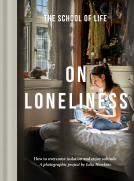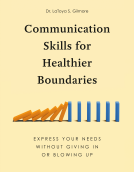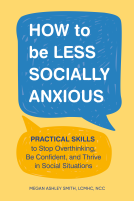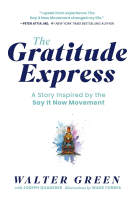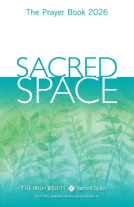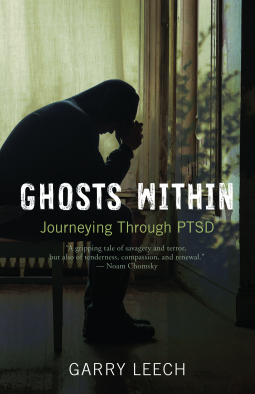
Ghosts Within
Journeying Through PTSD
by Garry Leech
This title was previously available on NetGalley and is now archived.
Send NetGalley books directly to your Kindle or Kindle app
1
To read on a Kindle or Kindle app, please add kindle@netgalley.com as an approved email address to receive files in your Amazon account. Click here for step-by-step instructions.
2
Also find your Kindle email address within your Amazon account, and enter it here.
Pub Date Mar 01 2019 | Archive Date Jun 12 2020
Fernwood Publishing | Roseway Publishing
Description
What are the long-term psychological costs of violence and war? Journalist Garry Leech draws from his experiences as a war correspondent, his ongoing personal struggle with PTSD and the latest research on this mental illness to provide a powerful and vivid answer to this question. For thirteen years, Leech worked in Colombia’s rural conflict zones where he experienced combat, witnessed massacre sites and was held captive by armed groups. This raw account of his journey from war on the battlefield to an internal, psychological war at home illustrates how those who work with traumatized populations can themselves be impacted by trauma.
Leech removes some of the stigmas, fears and ignorance related to PTSD in particular, and mental illness in general, by shedding light on a largely invisible illness that mostly manifests itself behind the closed doors of our homes. Ultimately, the book uses a journalist’s journey through PTSD to provide a message of hope for all those who suffer from this illness.
Advance Praise
“Garry Leech weaves his own raw experiences together with clinical understandings from today’s leading PTSD researchers and writers. As such, this book may be helpful for his fellow war correspondents as well as military veterans, accident victims, and survivors and witnesses of abuse and violence.” —Emily Bushell, Counselling Therapist
Available Editions
| EDITION | Other Format |
| ISBN | 9781773632063 |
| PRICE | CA$25.00 (CAD) |
| PAGES | 128 |
Average rating from 6 members
Featured Reviews
 Ashley P, Reviewer
Ashley P, Reviewer
Ghosts Within: Journeying Through PTSD is written by former war zone journalist Garry Leech, who developed post-traumatic stress disorder in response to the horrors to which he'd been exposed through his work.
The book does describe some of the traumatic events the author experienced. This took a few forms: as descriptions of flashbacks, as part of his work with his therapist, and as short descriptive but emotionally detached clips interspersed throughout the book. The descriptions of violence are not gratuitous, but readers with a history of trauma should carefully consider whether these sorts of descriptions might be triggering. This is explained in the book's introduction.
The book opens with Leech experiencing intense suicidal ideation; he was able to stop himself from acting on this by thinking of his family. I thought this placement at the beginning was quite effective, as it sets the tone that this book is going to tackle difficult subjects head on.
Something that struck me as a bit odd was his explanation early on in the book of how he met and fell in love with his current wife, which happened while he was married to his now former wife. It doesn't add value to the story and may unnecessarily bias readers against him. It doesn't help that in the same part of the book he mentions that he found out he had a daughter when she contacted him as an adult. That becomes significant in the story much later on, but the way it was included at the beginning alongside with the way he met his wife was perhaps not the best choice.
Hyperarousal was the first symptom that became quite noticeable, and this manifested as frequent angry outbursts. He explains how challenging this was for his wife. As the illness progressed, he would regularly tell her to leave him. She was the one who first suggested he had PTSD, but he brushed it off at the time thinking it was something that only happened to soldiers. His own slow process of coming to understand his diagnosis underscores the importance of his stated intention to raise awareness about PTSD.
He wrote about changing his appearance so not just others but also he himself wouldn't be able to recognize him as the person he had been. He walks the reader through what it's like to experience flashbacks and panic attacks. He also shared the story of an intense flashback that led to him uncontrollably self-harming. As a result, police and ambulance attended, sedated him, and too him to hospital in restraints. It was after this incident that he agreed to start medication, something he had previously been opposed to.
He explains how he worked regularly with a therapist, which helped to control his symptoms to a point. In the hopes of being able to get his life back, he decided to try eye movement desensitization and reprocessing (EMDR). As is so often the case, there was a long wait to get it through the public system, and his insurance would not cover the treatment. Luckily he was able to pay for it out of pocket.
He gives thorough descriptions of the work that was done during EMDR sessions, so even a reader unfamiliar with the therapy would get a good sense of it. With the therapy he was able to work through the shame and guilt related to the trauma. He also came to understand that the numbness he felt was dissociation. It was at this point he also came to realize that he had blocked out the memory of learning of his daughter's birth while she was an infant.
The EMDR treatment was very effective, and after seven weeks the intrusive memories stopped. While he has continued to have some ongoing symptoms, he was able to get to the point where he felt he could live a meaningful life again. He tried going off his medication, but the hypervigilance and anxiety returned, so he restarted it.
He explains that despite how challenging PTSD has been, the experience has put him more in touch with his feelings. He feels more vulnerable, which makes it harder to trust others, but he recognizes that there are also upsides. He found writing therapeutic, and advocacy around mental illness awareness has helped to give him a new sense of purpose.
I suspect that for those who are unfamiliar with PTSD this book may be very eye-opening. PTSD among journalists is not something that receives much attention, so this book can help to address that deficit in awareness. The only real downside for me was that I found some of the chapters a little long given the effects my own mental illness has on my concentration. Overall, though, this book makes a useful contribution in showing the journey from knowing very little about PTSD to being able to conquer it.
 Krystal G, Reviewer
Krystal G, Reviewer
Thanks to Netgalley and the publisher I was able to read this book in exchange for an honest review.
***
The book begins with a warning about some of the things discussed in the book, you know yourself best. Read the warning and decide if it’s something you can handle or not.
Ghosts Within is the story of a war correspondent, Gary Leech, and how the things he saw affected him. PTSD is something that is still very commonly associated with just soldiers and while soldiers most certainly can be diagnosed with PTSD doing so ignores huge swaths of people that aren’t soldiers that are afflicted by PTSD. Gary does a fantastic drop of noting information about PTSD: statistics, background, history, etc. throughout the book. (I don’t know if it’s going to be included in the final copy but some of the books and people he sites throughout his story would be awesome to have at the end of a book in case someone is interested and wants to learn more about what he was talking about.)
Gary also does a great job of breaking down what he went through, noting that his case is not the only way for it to happen, and explains the whys and how’s of it: How does this affect you? Why do you react this way? How do these things connect? Etc.
He also does not shy away from how ugly it can get: he talks about suicidal ideation, self harm, self medication, anxiety, and depression. He does not ignore that it affected his family and how it affected his family.
There are anecdotes of the things he witnessed spread throughout the book, it is discussed in his therapy, the dreams that haunt him, and small blocks of information set throughout the book. This is not an easy book to read, but I think it’s an important book. PTSD is something more people need to understand, it’s an invisible illness and like all invisible illnesses awareness is key to make it better understood.
 Ann T, Reviewer
Ann T, Reviewer
Thank you Fernwood Publishing and Netgalley for this ARC in return for my review.
This was a heartfelt, honest memoir of the author’s,Gary Leech, experience of PTSD following his career as a war correspondent. The book is as described, a journey through PTSD and the effects it has on Gary but also those around him. The content includes research and treatment strategies. This is not a light read but it is a helpful book to get a better understanding of PTSD and how it it is experienced.
Readers who liked this book also liked:
We Are Bookish
Business, Leadership, Finance, Nonfiction (Adult), Self-Help
Marie Bostwick
Historical Fiction, Literary Fiction, Women's Fiction
Megan Ashley Smith, LCMHC, NCC
Health, Mind & Body, Nonfiction (Adult), Self-Help






